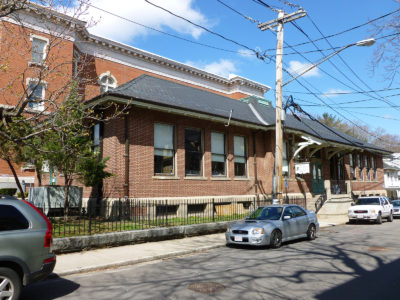
A year after Mayor Martin Walsh’s Office of Women’s Advancement and the American Association of University Women teamed up to offer salary negotiation workshops in a program called Work Smart in Boston, a report has been released detailing the successes of the workshops.
The workshops teach women how to improve their salary and how to take action for gender equality in the workforce, according to a press release from Walsh.
The report relating the success of the workshops, titled “Gaining Ground on Equal Pay”, interviewed 52 of the 1800 participants of the workshops within its first year, according to the release.
Around 87 percent of the women interviewed had already taken some sort of action concerning their personal wages, from identifying their target salary to negotiating their salary and benefits, according to the report.
Christa Kelleher, the research and policy director at Center for Women and Politics and Public Policy, the center that provided the data, said the title of the report reflected the success of the workshops so far in the city.
“We saw women are gaining ground in their workplaces and their own lives and the city is gaining ground on behalf of all of the working women of the city of Boston as well as the business community and the nonprofit community and all of the employers in this area,” Kelleher said.
Brenna Callahan, the policy and communications manager at the Mayor’s Office of Women’s Advancement, said launching the workshops was an important step in beginning to address the issue of the gender pay gap within the city.
“Closing the gap would not only empower individual women but also their families, their communities and Boston’s economy,” Callahan said. “I think sometimes people forget that we can look at this from a business perspective too — many companies report experiencing positive change in their workplaces.”
Only 38 percent of women who participated in the study were from minority groups, according to the report. Because the wage gap is increased for women of minority groups, the report calls for a larger outreach to these communities.
Within the past year, Callahan said the Mayor’s Office of Women’s Advancement has taken steps to increase their outreach to women of color.
“Something that we’ve really been trying to do more of is continuing to reach out and partner with membership organizations,” Callahan said. “Partnering with organizations that specifically serve women of color is going to be huge for us going forward.”
Rose Corcoran, the senior public affairs associate at the Boston Foundation and one of the editors of the report, said the Boston Foundation has been funding the workshops so that they are free and accessible to all women interested in the program.
“There’s a shifting economic landscape where women are primarily responsible for their household income,” Corcoran said. “Mayor Walsh wants to be the first city in the country to achieve pay equity. Not just from a social justice perspective, but from an economic perspective.”
Several Boston residents said they believe the workshops are beneficial for advancing women’s presence in the workplace.
Yvonne Cancino, 45, of Kenmore, said women should be paid equally because they do the same work as their male counterparts.
“We work the same jobs, we probably put more hours because we are more responsible than men and I know that because I manage men,” Cancino said.
Joe Mendelsohn, 28, of Fenway, said the workshops should continue to reach out to women of minority groups to help them reach pay equity in the workplace as well.
“We are all one human race and without their voice, they can’t be heard, so their trials and tribulations can’t be worked out as well,” Mendelsohn said.
Pat Andrews, 58, of Back Bay, said the Mayor’s Office’s involvement is vital in addressing the wage gap.
“It’s important that the Mayor’s Office be involved because frequently, these need to be a combination of efforts coming top down from political authority, regulatory authority,” Andrews said.
Sabrina Schnur contributed to the reporting of this article.
Breanne is a former editor-in-chief and city news editor. She is a senior in the College of Communication and an oxford comma enthusiast. Follow her on Twitter @breannekovatch.




